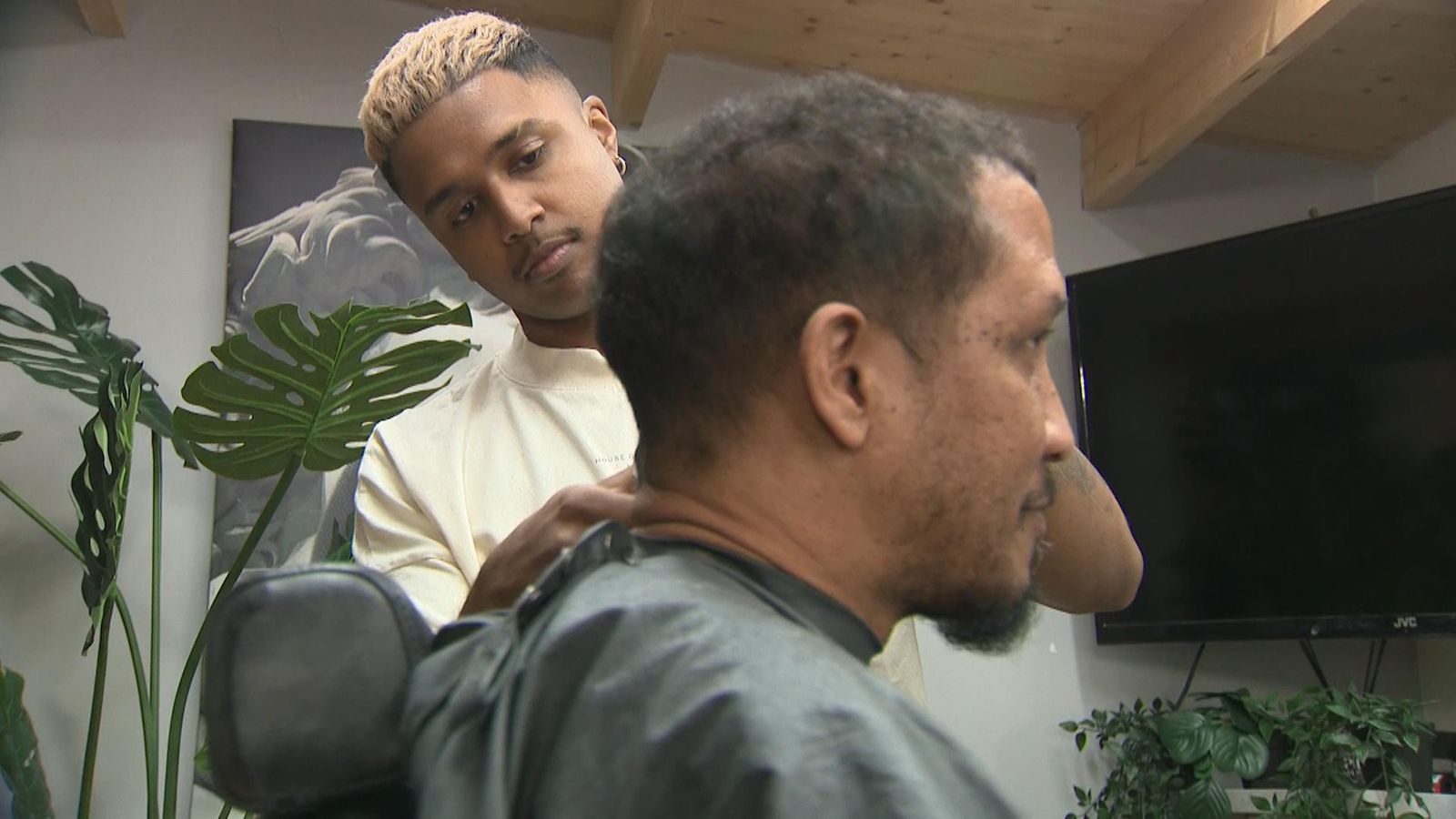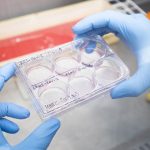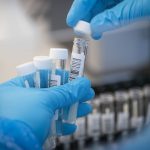Bertrand Augustin’s barber studio has always been a space to talk, but recently, one topic has become particularly important: cancer.
This is a cause that has become deeply personal to him after losing his dad George to the disease last year, and realising the subject was a difficult one for many of his family members.
“I think it had been a taboo for a very long time,” he said.
“Especially in the ethnic culture, where we tend not to discuss these things.
“When he passed away and we were going to do the eulogy we were going to mention it but we were not even sure family members knew.”
In the end, they did mention bowel cancer was his cause of death, because they felt his father had been “incredibly strong”.
As part of a bigger effort to help change this taboo, he has turned his House of Bertrand Studio in Bromley, south London, into a safe to space to talk about the disease. This is part of a project by Macmillan Cancer Support that includes nine barber shops across London.
Paul Byrne: Tributes as comedian Ed Byrne’s younger brother dies after battle with Hodgkin’s lymphoma
Sajid Javid vows ‘new war on cancer’ as families mourn victims who missed treatment in lockdown
Cancer milestone for youngest tumour patient: Pioneering proton beam treatment gives Teddy back his future
Lee Townsend, an engagement lead for Macmillan, calls them “key pillars” in black communities, with multiple generations of the same family seeing the same barber.
“What Bertrand is able to offer along with the other barber shops involved in this project across London is time where they can engage freely in a safe environment, where discussions about all manner of things come up and from time to time issues around healthcare can be raised,” he said.
In one example of how these relationships can be so important, Lee can remember an incident where a man who had a bump was convinced to go and see a doctor by his barber, which turned out to be a tumour. He went on to have radiotherapy, and five years on, he is cancer free.
One of the people who comes to Bertrand’s shop to speak out is Sean Baker.
Sean was diagnosed with prostate cancer in 2018, having also had a multiple sclerosis relapse, potentially brought on by his diagnosis.
The 52-year-old, who is a mental health nurse, went on to have a biopsy, where doctors were able to remove all the cancer cells.
He tells people that it is important to get screened early like he did.
“I tell people that if you were okay before, there is a good chance you are going to be okay afterwards. There are so many things that the doctor can help you with.”
The reluctance to speak out about cancer in minority communities is a complex issue which is tied to worse treatment outcomes for people from non-white backgrounds.
At least 30,000 people from ethnically diverse backgrounds are diagnosed with cancer every year in the UK, according to the 2019 national Cancer Patient Experience Survey for England.
This data shows people with cancer who are black or Asian are 24% to 36% more likely than those who are white to say their treatment options were only partially explained or not explained at all before they started.
Please use Chrome browser for a more accessible video player
A survey by Macmillan and YouGov last year found people with cancer from an ethnically diverse background are almost twice as likely to say they could have been diagnosed at an earlier stage if there had been fewer delays within the NHS.
Similar issues are being encountered by GPs such as Dr Farzana Hussain, who works at The Project Surgery in Newham. She says she is now referring two patients a week for cancer treatment. Many of them are presenting their symptoms late.
Recently she saw a black middle-aged patient with a swollen prostate and one of the highest prostate-specific antigen scores she had ever seen. She thinks some are putting off appointments because of poverty.
Please use Chrome browser for a more accessible video player
“Newham has had the highest furlough rate,” she said.
“If you’re thinking about feeding your family, thinking about your cancer screening test might not be on your mind. If you’ve got a bit of blood in your wee, you might just ignore that, you might not have the time to see your doctor.”
This combined with issues like language barriers and a lack of tailored support are causing problems in diverse but poor areas like hers.
Referring more people for cancer treatment than ever, Dr Hussain had this appeal for people: “Please contact us, I know that people have felt GP surgeries are closed and that they don’t want to bother the NHS, but this is your life. This is what we are here for.”






















